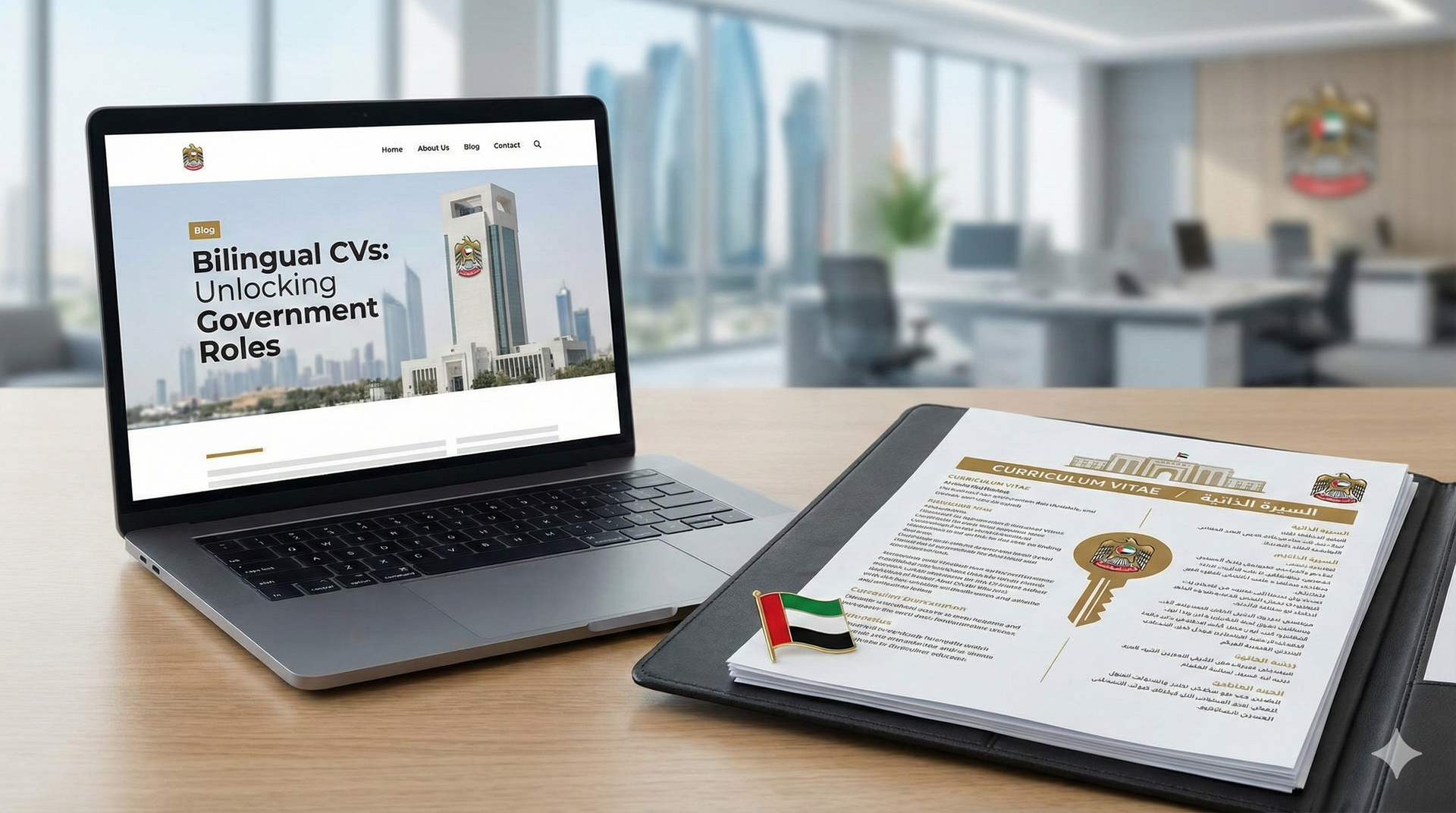UAE Executive Compensation 2025: Salary Trends for Senior Professionals

In 2025, the UAE continues to strengthen its position as one of the most rewarding markets for executive leadership. With competitive compensation structures, international-standard benefits, and tax-free income, the UAE remains a global hub for senior professionals seeking both financial and lifestyle advantages.
From government entities and semi-government institutions to private conglomerates and multinational firms, compensation for executives in the UAE has evolved beyond salary — it now reflects strategic impact, innovation, and leadership value.
This article provides an analytical overview of executive compensation trends in 2025, covering pay scales, bonuses, benefits, and the future outlook for senior professionals in the UAE.
1. Executive Salaries: 2025 Market Overview
According to the Gulf Business Salary Survey 2025 and Robert Half UAE Salary Guide, executive pay in the UAE has grown steadily due to economic diversification, increased foreign investment, and competition for high-calibre leadership talent.
Average Monthly Salary Ranges (2025):
- Director / General Manager: AED 55,000 – 80,000
- Vice President / Senior Executive: AED 70,000 – 100,000
- C-Suite (CEO, CFO, COO): AED 90,000 – 150,000+
- Government & Semi-Government Executives: AED 60,000 – 120,000
- Advisory and Consultancy Leaders: AED 50,000 – 90,000
These figures exclude additional benefits such as housing, schooling, annual flights, and performance bonuses — which can increase total compensation by 25% to 40% depending on the sector.
2. Key Factors Influencing Executive Pay in the UAE
1. Sector and Industry
Sectors driving transformation — such as renewable energy, AI, fintech, and real estate — offer the highest executive salaries. Government-linked projects in infrastructure and smart governance also provide strong remuneration for strategic leaders.
2. Emiratisation and Localisation Policies
With nationalisation efforts in full effect, Emirati and GCC nationals in senior roles often receive additional allowances, fast-track bonuses, and leadership development incentives, especially within semi-government and federal entities.
3. Company Ownership and Size
Executives in multinational or joint-venture organizations typically earn higher base pay, while semi-government institutions offer stability, performance-linked bonuses, and long-term pension schemes.
4. AI and Innovation Experience
Leaders with proven results in digital transformation, automation, or sustainability initiatives now command premium pay. Innovation has become a measurable compensation driver across the GCC.
5. Performance-Based Metrics
C-suite contracts increasingly tie bonuses to quantifiable outcomes — revenue growth, ESG results, cost savings, and national impact indicators.
3. Public vs. Private Sector: A Balanced Opportunity
While private-sector executives often enjoy higher potential earnings through stock options and global exposure, government and semi-government leaders benefit from stability and structured growth.
- Public Sector Benefits: Long-term security, pension contributions, housing, and education allowances.
- Private Sector Advantages: Profit-sharing models, performance-based incentives, and multinational visibility.
Senior professionals with experience bridging both sectors — especially in policy, technology, or sustainability — enjoy the greatest flexibility and compensation growth potential.
4. Semi-Government Entities Setting the Standard
Entities such as ADNOC, Mubadala, DEWA, Masdar, and Abu Dhabi Ports Group remain top paymasters for executive talent in the UAE.
Their compensation models emphasize value-based remuneration, rewarding leaders who deliver measurable results in:
- Innovation and efficiency initiatives.
- ESG and sustainability integration.
- Strategic partnerships and investment performance.
Executives in these organizations often receive total annual packages exceeding AED 1 million, especially when including housing, family allowances, and bonuses.
5. Executive Compensation Components: Beyond Base Salary
Modern compensation packages in the UAE are comprehensive and tailored for executive well-being and retention.
Common components include:
- Annual Performance Bonuses: Typically 15–30% of base salary.
- Housing Allowance: Covers premium accommodation or full company-provided housing.
- Education Assistance: School fees for children (often up to AED 100,000 annually).
- Transport or Car Allowance: Company cars or monthly transport budgets.
- Health & Life Insurance: Comprehensive coverage for the executive and dependents.
- Annual Flights: Business-class travel to the home country.
- End-of-Service Benefits / Pensions: Equivalent to global retirement standards.
Some private companies also offer equity participation, retention bonuses, or long-term incentive plans (LTIPs) for C-suite executives.
6. Salary Trends by Industry
1. Energy & Sustainability
Executives in energy transition and sustainability leadership remain among the highest paid. Demand for expertise in hydrogen, renewables, and green finance drives premium packages.
2. Technology & AI
AI-driven organizations are increasing executive pay by up to 20% to attract leaders skilled in digital governance, cybersecurity, and automation.
3. Banking & Finance
CFOs and investment heads remain key earners, with total compensation often exceeding AED 120,000 monthly, especially in private equity and sovereign wealth funds.
4. Real Estate & Construction
Senior project and portfolio directors earn between AED 70,000–110,000, with incentives tied to project delivery and investor returns.
5. Education, Healthcare & Public Policy
Although slightly lower in base pay, these sectors offer long-term benefits, stability, and leadership prestige, especially for nationals.
7. The Rise of Non-Monetary Compensation
In 2025, employers increasingly recognize that executives value purpose, flexibility, and influence as much as salary. Non-monetary rewards now include:
- Hybrid work structures and autonomy.
- Participation in strategic councils or innovation boards.
- Sustainability and CSR project leadership opportunities.
- Executive wellness programs and sabbaticals.
This shift reflects a deeper alignment between personal purpose and organizational mission, especially among UAE’s next-generation leaders.
8. How to Negotiate an Executive Package in the UAE
Effective negotiation requires a clear understanding of your value, market benchmarks, and deliverables.
1. Research Market Standards
Use verified reports like Robert Half UAE Salary Guide or Gulf Business Compensation Survey.
2. Quantify Your Value
Prepare data-backed proof of your leadership ROI — cost reductions, transformation results, or expansion milestones.
3. Present a Strategic Profile
A professionally branded CV and LinkedIn profile are crucial for credibility.
→ Refine your materials with
Professional CV Writing Services and
LinkedIn Optimization for Executives.
4. Consider Total Rewards, Not Just Salary
Factor in housing, education, and bonus structures when evaluating offers.
5. Engage a Career Advisor
Get expert insights before finalizing your contract.
→ Explore
Expert Career Support for GCC Leaders for tailored guidance.
9. 2025 Outlook: Competitive Pay Meets Strategic Purpose
The UAE’s leadership market is shifting from compensation-driven to impact-driven employment. While financial rewards remain generous, organizations now prioritize leaders who deliver innovation, inclusion, and sustainability outcomes.
Executives who align professional value with national progress — particularly in AI, green energy, and digital transformation — will continue to command top-tier packages through 2030 and beyond.
Conclusion
UAE executive compensation in 2025 reflects more than income — it represents recognition of strategic leadership. The market rewards executives who contribute measurable value, embrace innovation, and align their vision with the nation’s growth strategy.
For professionals aiming to advance into high-impact leadership roles, Labeeb Writing & Designs offers strategic career branding, CV optimization, and advisory services that communicate your executive value effectively.
👉 Visit www.labeeb.ae to strengthen your position in the UAE’s evolving executive job market.
FAQ
1. What is the average CEO salary in the UAE in 2025?
CEO compensation ranges between
AED 100,000 and AED 150,000 per month, with total packages exceeding AED 2 million annually including benefits.
2. Are salaries higher in semi-government organizations or private firms?
Semi-government entities offer stronger stability and benefits, while private firms may offer higher performance-linked incentives.
3. Do Emirati nationals earn differently from expatriate executives?
Yes. Emirati leaders often receive additional allowances under Emiratisation and leadership development policies.
4. Are executive salaries expected to rise further?
Yes. As the UAE expands into AI, sustainability, and digital governance, executive pay is projected to increase by
8–10% annually.
Arabic Summary (ملخص بالعربية)
تشهد رواتب التنفيذيين في الإمارات عام 2025 ارتفاعًا ملحوظًا مدفوعًا بالنمو الاقتصادي والتحول الرقمي. تتراوح رواتب المديرين التنفيذيين بين 55,000 و150,000 درهم شهريًا، مع مزايا إضافية تشمل السكن، التعليم، والمكافآت السنوية. توفر الجهات شبه الحكومية مثل أدنوك ومبادلة وديوا حزمًا مالية سخية لقادة المشاريع الاستراتيجية. في المقابل، تركز الشركات الخاصة على الحوافز والأرباح. ومع توسع القطاعات في الذكاء الاصطناعي والطاقة المستدامة، من المتوقع استمرار ارتفاع الرواتب التنفيذية في السنوات القادمة. تساعد Labeeb Writing & Designs القادة على تعزيز علاماتهم المهنية والتفاوض على حزم مالية تتناسب مع قيمتهم القيادية في سوق العمل الإماراتي.








